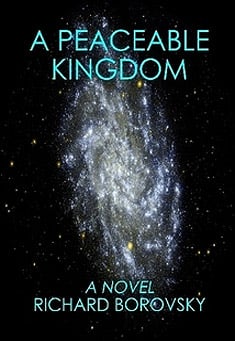Excerpt: On some days Orlando didn’t want to get out of bed. It wasn’t that he hadn’t had enough sleep—he’d been going to bed early recently and rarely had trouble falling asleep—it was that he preferred his dream world to his waking one, which had become less fulfilling as the years went by. His dream world was no picnic, of course: it was capricious and unpredictable, but it had none of the drudgery of his daily life, and though his dreams could be troubling, he often woke wishing he could return to them—the possibilities seemed endless. When Orlando woke and felt pressed to embark on his daily routine, he often wondered if there was anything inherently more important about getting up, taking a shower, drinking coffee and going to work, than there was in dreaming. He had no family and no real responsibilities beyond his own, and he sometimes reasoned, while still in bed, that if he were to move to a warmer climate and become a homeless man, eating at food pantries and sleeping under a palm tree somewhere, he could still enjoy his dreams and even prolong them if he wished. And who would care? What difference would it make? It certainly wouldn’t make any difference to God—at least not the one he believed in.
But Orlando wasn’t brave enough to live like that; he’d come close once and it hadn’t worked out. Besides, if he were homeless, he’d have to associate with more conventional and possibly disreputable homeless people; something he was not prepared to do. But he really didn’t take this possibility of abandoning his so-called responsibilities seriously. He only considered it while still in bed and wishing to return to one of his happier or more intriguing dreams.
Orlando had turned forty and things hadn’t worked out as he’d hoped. There was no brilliance to his life, no luster, something he craved. His apartment was small, and the view of the little city park he’d enjoyed had been blocked by expansion of the Chinese restaurant around the corner. Orlando liked the restaurant. He ate there twice a week: usually alone for dinner on Tuesdays and Fridays. He also liked the restaurant’s owner, Mr. Lee, a friendly man with whom he often chatted and laughed, and who, through wise investments in real estate, had the means to convert the parking lot adjacent to The Jade Palace into a parking enclosure with a large second floor banquet room above it.
Orlando was happy for Mr. Lee; he encouraged him. He felt he had ties to the restaurant and that Mr. Lee’s success had been his own. It wasn’t until the project was well underway that he realized that the grassy expanse of park he’d seen from his kitchen window would be blocked by a windowless brick wall. He had enjoyed sitting in his little kitchen watching passersby: children playing in the park, couples and families strolling there. He’d watched the seasons change in the frame of that window by the table where he drank his morning coffee. There were maple trees there, radiantly green in spring and summer, turning now in the autumn, and soon to be stark against the winter snow cover. And it seemed to Orlando that so much in his life had turned out that way: mixed blessings, in which he seemed always short-changed.







